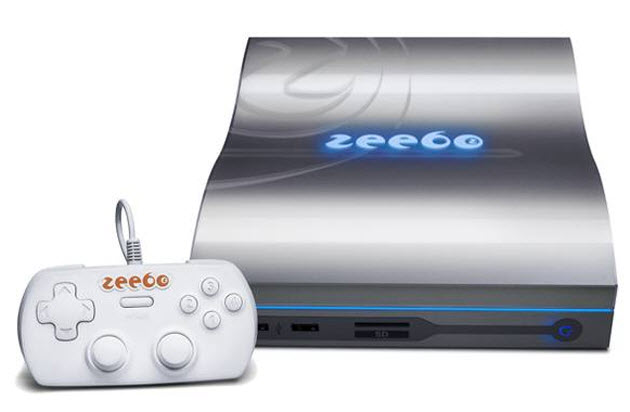 Video game console makers haven’t succeeded in getting Chinese regulators to approve their products for the Chinese market, largely because they are not perceived as good for Chinese youth. But Zeebo is angling to bring its game console to market as a digital set-top box focused on family education and entertainment.
Video game console makers haven’t succeeded in getting Chinese regulators to approve their products for the Chinese market, largely because they are not perceived as good for Chinese youth. But Zeebo is angling to bring its game console to market as a digital set-top box focused on family education and entertainment.
Zeebo China has teamed up with China Digital TV to create a 3G-connected set-top box aimed at families with young children. John Rizzo, chief executive of Zeebo, said the company has been working to bring its Zeebo platform to the Chinese market for the better part of a year. No launch date has been set yet, but the deal with the Chinese firm is a big step toward getting the console in consumers’ hands.
San Diego, Calif.-based Zeebo spun out of Qualcomm as part of a plan to make a video game console for the developing world. The system is based on low-cost hardware, including a Qualcomm processor and a 3G phone modem instead of a broadband internet adapter. Users can download games into the flash-based storage on the box via the 3G connection.
Zeebo’s low cost and ease of manufacturing have allowed it to steal a march on the big console makers. While import taxes make it cost prohibitive to sell consoles in Brazil (Sony is trying), Zeebo gets around those taxes or restrictions by manufacturing its console in the country where it sells the units. That is what it has done in Brazil and Mexico.
It will also set up local manufacturing in China. Zeebo’s partner, China Digital TV Holding, is a publicly traded company that provides digital TV programming via set-top boxes. Zeebo will also work with other partners in China to create a stand-alone version of the Zeebo system tailored for China. Rizzo said he moved to China a year ago to set it all up through Zeebo’s offices in Beijing and Shanghai.
“China is one of our largest opportunities and also the most complex because of regulations,” Rizzo said.
Zeebo also customizes the content for each market. The company sold its console in Brazil as a game machine. But in Mexico, where there is low tolerance for violent titles, Zeebo configured the machine as an educational product. Zeebo is also allying itself with Chinese developers to make culturally relevant games and educational programs. Users will be able to connect to the internet and view China-specific web content that meets the restrictions of China’s censors.
Content is being developed by Beijing-based Nebula Soft. Titles include Blue Sea School and Fish vs. Pirates. Interactive learning books, English-language learning programs and other titles are also in the works.
The good thing about emerging markets such as China is that 3G cell phone reception is becoming pervasive. So even though many homes don’t have broadband, families can use the Zeebo machine to get on the web and download games or educational programs.
Zeebo is funded by Brazilian video game company Tectoy and wireless chip maker Qualcomm. Qualcomm has invested $5.5 million in the company, which was founded by Reinaldo Normand, who previously headed Tectoy’s North American mobile unit, and Mike Yuen, the games guru at Qualcomm. Yuen has since joined Zeebo. Normand moved to Shanghai in October, 2009, to start setting up the China business.
VentureBeat's mission is to be a digital town square for technical decision-makers to gain knowledge about transformative enterprise technology and transact. Learn More
